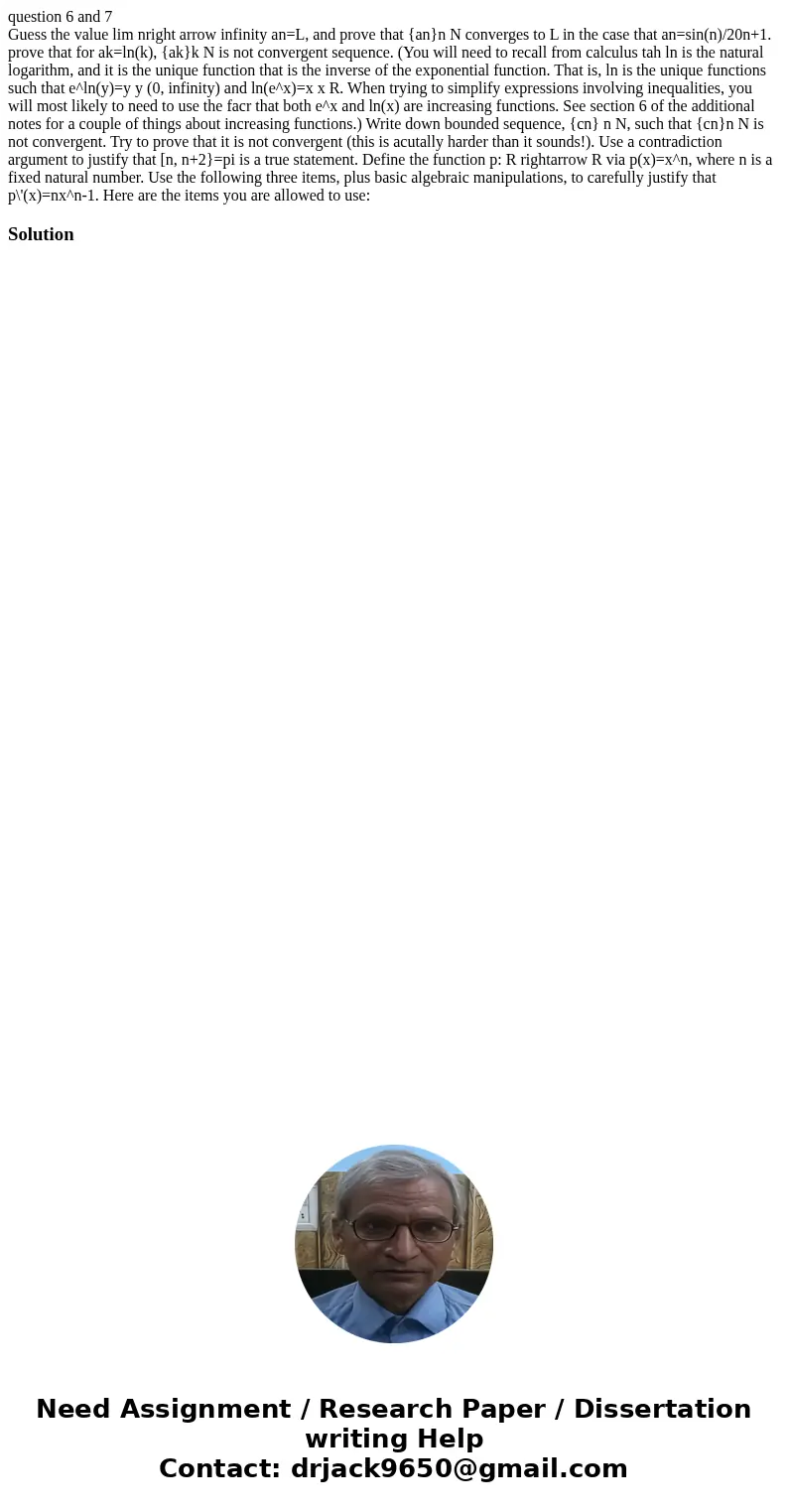question 6 and 7 Guess the value lim nright arrow infinity a
question 6 and 7
Guess the value lim nright arrow infinity an=L, and prove that {an}n N converges to L in the case that an=sin(n)/20n+1. prove that for ak=ln(k), {ak}k N is not convergent sequence. (You will need to recall from calculus tah ln is the natural logarithm, and it is the unique function that is the inverse of the exponential function. That is, ln is the unique functions such that e^ln(y)=y y (0, infinity) and ln(e^x)=x x R. When trying to simplify expressions involving inequalities, you will most likely to need to use the facr that both e^x and ln(x) are increasing functions. See section 6 of the additional notes for a couple of things about increasing functions.) Write down bounded sequence, {cn} n N, such that {cn}n N is not convergent. Try to prove that it is not convergent (this is acutally harder than it sounds!). Use a contradiction argument to justify that [n, n+2}=pi is a true statement. Define the function p: R rightarrow R via p(x)=x^n, where n is a fixed natural number. Use the following three items, plus basic algebraic manipulations, to carefully justify that p\'(x)=nx^n-1. Here are the items you are allowed to use:Solution

 Homework Sourse
Homework Sourse